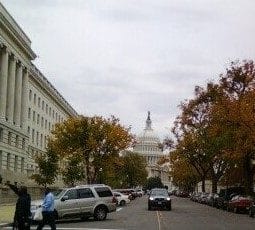On Friday, news that the Supreme Court had ruled 6-3 to do away with the “Chevron deference” attracted the attention of many across the U.S. and Inside the Beltway, as the decision could impact agencies such as the Federal Trade Commission and the FCC.
One day earlier, another 6-3 ruling has also put federal agencies such as the FCC on notice that their reliance on Administrative Law Judges could soon be coming to a conclusion.
In a 6-3 decision that saw conservatives come out ahead of more liberal judges, the Supreme Court determined that individuals accused of fraud by the Securities and Exchange Commission are entitled to a trial by jury.
The rule puts the role of the ALJ in a murky position. For the Rosenworcel Commission, and during the leadership of Ajit Pai, the Administrative Law Judge — or the very threat of sending a questionable deal to a hearing in front of the judge — torpedoed high-profile deals such as Sinclair’s failed bid for Tribune and TEGNA’s proposed acquisition by Standard General, with help from Apollo Global Management.
Key to the ruling is a similar interpretation of the Constitution as applied to the decision to end the Chevron deference that the ALJ are within the executive branch of the federal government and not within the judicial branch. Thus, the Supreme Court ruled, this marked an improper balance of power.
Commenting on X (formerly Twitter) on the ruling, former FCC Commissioner Mike O’Rielly said, “[It is] just a matter of time before [the] FCC’s broken ALJ process is similarly and rightfully struck down. It’s process abuse of the highest order. I’ll admit it’s different than [the] SEC’s use but no less problematic.”
He’s not alone, as media reports suggested other federal agencies including the Labor Department and the Environmental Protection Agency are now facing a dilution of authority, reducing the ALJ’s sway.
In SEC v. Jarkesy, the agency opted to adjudicate a matter involving investment adviser
George Jarkesy Jr., and his firm, Patriot28 LLC, for alleged violations of the “antifraud provisions” contained in the federal securities laws in-house. The final order determined that Jarkesy and Patriot28 had committed securities violations and levied a civil penalty of $300,000. Jarkesy and Patriot28 petitioned for judicial review, and the Fifth Circuit vacated the order on the ground that adjudicating the matter in-house violated the defendants’ Seventh Amendment right to a jury trial.
Enter the Supreme Court, which heard the case on appeal from the SEC. It upheld the Fifth Circuit ruling, saying, “When the SEC seeks civil penalties against a defendant for securities fraud, the Seventh Amendment entitles the defendant to a jury trial.”
For Justice Sonia Sotomayor, who penned the dissenting opinion, a difference in opinion couldn’t have been more stark. “Today, for the very first time, this Court holds that Congress violated the Constitution by authorizing a federal agency to adjudicate a statutory right that inheres in the Government in its sovereign capacity, also known as a public right. According to the majority, the Constitution requires the Government to seek civil penalties for federal securities fraud before a jury in federal court. The nature of the remedy is, in the majority’s view, virtually dispositive. That is plainly wrong.”
Sotomayor continued, “The majority today upends longstanding precedent and the established practice of its coequal partners in our tripartite system of Government. Because the Court fails to act as a neutral umpire when it rewrites established rules in the manner it does today, I respectfully dissent.”
What’s to come for the FCC is uncertain. But, it could upend future enforcement actions while turbo-charging communications attorneys, hired to take on newly emboldened broadcasters seeking to go to court to fight for regulatory relief.





